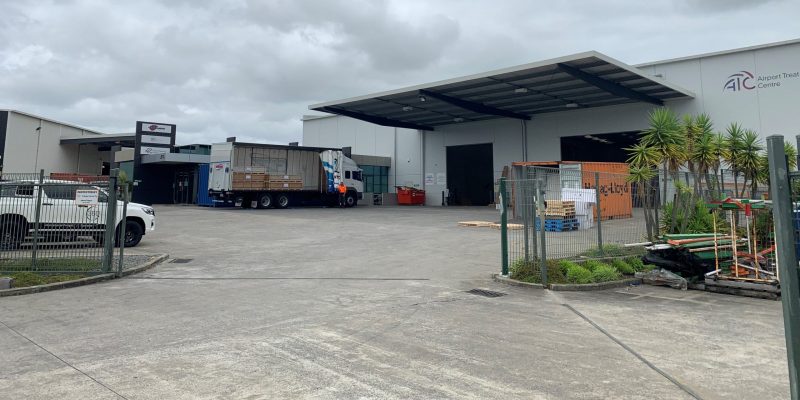High demand and growth puts pressure on manufacturing sector
The beginning of 2021 is proving a headache for the manufacturing sector and it could be some time before the pain relief kicks in.
The cost of sourcing materials, increased demand, and supply issues are some of the areas industry is grappling with, according to Helen Down, Chief Executive of the Hutt Valley Chamber of Commerce.

“It’s clear supply issues are continuing to have an impact as manufacturers are unable to source their raw materials in a timely or cost effective manner. With limitations to international travel, we are witnessing a dramatic change in customers buying habits, with people spending their money on home and recreational products.
“This puts pressure on businesses who can’t keep up with demand in specific areas,” she said.
“A wide range of businesses are finding it extremely time consuming to source raw materials.
Some components are simply not available, and won’t be available, for many months, coupled with rapidly rising costs for materials.”
Shane Lowe, National Sales Manager of freight forwarding company 360 Logistics, based in Lower Hutt, said they are they facing increased shipping and air costs, and there is a general slowdown at the moment in the ability to move goods.

“The southbound rates from Asia continue to hold at peak levels as demand continues to outstrip capacity.
“The USA congestion issues over many ports, and the capacity and congestion problems between New Zealand and Australia, are forcing the need to look at different options,” he said.
“We are in the middle of the peak export season for New Zealand, and we are finding some route pricing has been pushed up and as a result we are struggling to find space to ship the product.”
Shane Lowe said they are also seeing delays from suppliers because the factory supplying finished goods is also waiting on components.
“These delays seem to be caused by a combination of freight and factory capacity due to workers either not being able to get to work or being limited on how many can be on site.”
Managing high risk growth
Helen Down said the sector is also experiencing new rapid growth, enabled by Covid-19, but that creates more risk.
“While growth is seen as a positive part of the business lifecycle, it is actually a time when costs can easily get out of control, profitability reduces, and the pressure on business is at a peak. Growth is a time when many businesses fail due to poor cashflow.
“People may consider business growth as a time when companies can afford more costs, however this is when these businesses are at their most vulnerable,” Helen Down said.
Industry targeted support from government needed
The Chamber would like to see the Government support specific programmes to target the manufacture sector and to help them around supply, skill shortages, plant and equipment investment.
Helen Down said support needs to be more focused and specific for the sector rather than treating manufacturing like all other businesses.
Meanwhile, Shane Lowe says the Government could have influence on providing skilled labour to reduce port congestion in places such as Auckland but admits it is also a problem the whole world is facing at the moment.
“In addition, there are probably few levers to pull on what is happening with shipping as it is a worldwide issue that has many components such as ship rotation, container, stock location and cargo direction.
“We have seen the Government support export airfreight, but not all commodities can afford a change from sea to air.”
Lowe said another area Government could be of assistance is in investigating the practice of shipping lines charging Detention on containers if they haven’t been returned within a set timeframe, which is usually only 7-10 days.
“They shouldn’t be charging Detention in this environment and placing more pressure on these companies because the fact of the matter is the shipping line depots cannot accept any more units because they are full.
“The cost to New Zealand importers is significant and misaligned with the real issue.”
An uncertain future
Helen Down said being an innovative, agile economy with a strong manufacturing base is not enough to address the challenges ahead.
Businesses are facing congestion, increased costs, complete lack of supply in some areas, extended time frames, and increasing supply costs.
“The new variants of Covid-19, along with the on-going alert level changes, are causing anxiety and stress for businesses increasingly impacted.
“The difficulties the manufacturing sector is experiencing creates a barrier for our economic recovery. This is another reason why the Government and the whole community should be doing all it can to support this sector,” Helen Down said.
Shane Lowe said he would be surprised to see a softening in either pricing or demands for the next 12 months and is encouraging people to be prepared and plan ahead.
He recommends, if cash flow and forecasting allows for it, ordering ahead of the curve to give manufacturers the best opportunity to use the most cost effective methods of shipping.
Then if the shippers would work with us to achieve the end result, we may find solutions they have not thought about.



